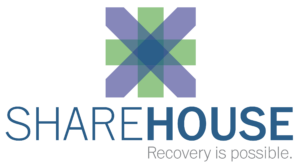
You’ve realized you want to get sober, now what? Who do you reach out to? What do you look for in a recovery center? These questions are probably running through your mind as you contemplate your next steps. The right rehab program will make success more likely, but the sheer number of options available can make the process even more overwhelming.
Choosing the right recovery center and treatment plan for you or a loved one can be a tough process, especially if you don’t know where to start. However, the right recovery program is out there. Here are things you should look for and topics to cover as you research the right recovery center for you.
Decide Your Rehab Goals
It’s extremely important to choose a treatment facility that will help you reach your personal goals. Determine what you want to get out of treatment. Do you have any underlying issues or behaviors you want to recover from? Do you suffer from any other medical conditions? These are important questions to ask yourself as you research treatment centers to ensure their program will best serve your needs.
Cost and Insurance
Cost can be the single biggest factor in choosing the right rehab center and it can vary depending on the facility and the type of treatment. If cost is a big factor for you, look into each facility’s payment options and whether or not they accept your type of insurance. Be sure to also check with your insurance provider to ensure your insurance can cover the costs.
Treatment Approaches
There are several treatment and therapy options available for drug and alcohol addiction depending on your symptoms, underlying causes, and how substance use affects different areas of your life. Take some time to research different types of therapies and which one you think will be best for you. Knowing you will be receiving a compatible treatment approach for your situation will help you build the best foundation for success.
Residential vs. Outpatient Care
Sometimes known as residential treatment, the patient stays at the rehab facility during the program. Outpatient is where the patient stays home but goes to treatment during the day. There are many differences between inpatient and outpatient care, so the right choice depends on your circumstances. Before you choose a facility, decide what kind of rehab is best for you and your situation.
Accreditation
Reputable drug treatment centers will be accredited by The Joint Commission or the Commission on Accreditation of Rehabilitation Facilities (CARF). These nonprofit organizations base their accreditation rankings on factors such as industry performance standards and quality and value of results. This rigorous certification process ensures another level of protection for the consumer against unethical rehab centers. Make sure to always check accreditation and certifications to confirm it’s a legitimate treatment center.
Mental Health Services
More often than not, drug or alcohol addiction and mental health conditions occur concurrently, which is why it’s important to choose a facility that can provide care for both. For patients with multiple diagnosis, providing treatment that incorporates both care for addiction and mental health disorders can make or break treatment success. Be sure to ask how mental health services are incorporated at your treatment providers.
Treatment Success Rates
To help you compare treatment programs, discover how each program tracks its patients’ progress and recovery. The definition of success will differ between providers, so try to find a center that uses research-based or legitimate statistics to measure the success rate of their treatment programs.
Post-Treatment Support
Just as in the treatment of other medical conditions, relapse is possible and often a part of the recovery process. Look for a treatment center that prioritizes post-treatment options to provide the support system you need once you’ve completed your program.
Finding the best rehab facility for you means looking for an accredited, reputable center that will provide you the best care for your needs. There are many topics to consider when researching facilities such as types of treatment, costs and payment options, success rates, and post-treatment support. Overall, ask yourself what you’re looking to get out of treatment and whether or not a center fits your recovery standards. The changes you make and the valuable lessons you learn in treatment will become the vital building blocks for your journey towards lifelong recovery.


